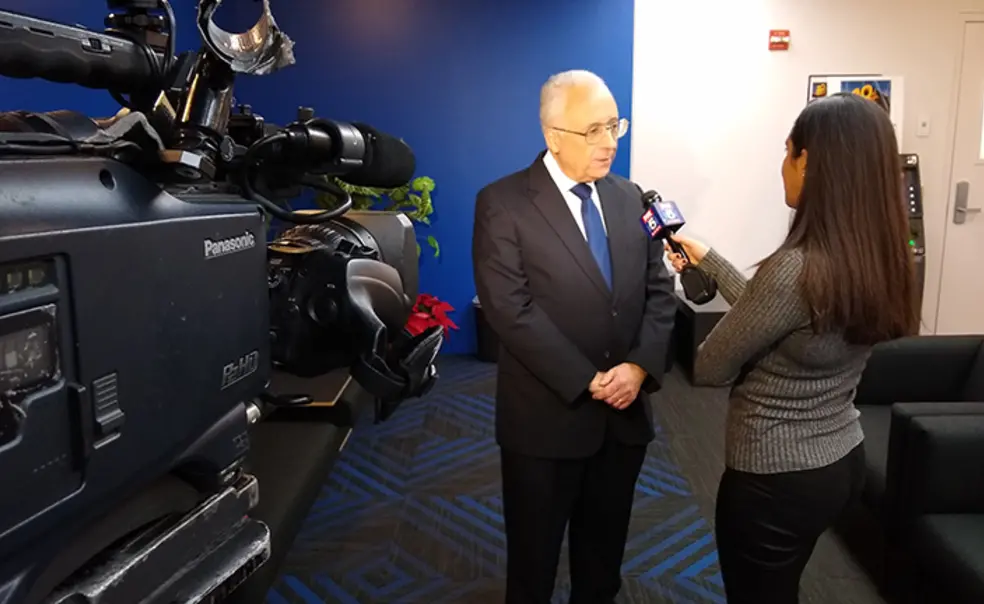After Teaching Students, Alain Sanders ’73 Is Teaching the Public
‘Be an alert, avid reader of as many different sources as you can,’ Sanders says
Alain Sanders ’73 likes to capture imaginations. As an associate professor of political science at Saint Peter’s University, Sanders loved classroom moments when flashbulbs went off in students’ eyes because he had taught them something new.
“That was my joy — watching students absorb information. It was a very satisfying feeling,” says the Bergen County, New Jersey, resident whose prior career also involved imparting knowledge. Before teaching American politics for 19 years at the Jersey City university, he served as a senior reporter at Time Magazine covering political and legal issues, including constitutional law, thanks to his law degree from Columbia University.
Sanders, whose family emigrated to Cresskill, New Jersey, from France when he was 9, had to prove himself to land both positions. Puzzled by why a lawyer would want to be a journalist, his future Time editors told him to go out and write a story.
Having done reporting for Princeton’s WPRB FM station, Sanders sharpened his pencil and pleased his new bosses by spending an evening in a Brooklyn small claims court to detail its workings. His resulting feature got him the job in 1979.
“I was the only person in the audience section” of the courtroom, Sanders says. “The judge never knew why I was there jotting things down. I guess he remains puzzled to this day.”
Years later, Sanders landed an exclusive in-depth interview with the just-retired Supreme Court Justice Lewis Powell. “It was just an amazing experience,” he recalls. The jurist from Virginia gave Sanders generous time in his chambers so they could review the high court’s work and his place in history.
During his 21 years at Time, he prided himself on striving for balance in the hundreds of stories he wrote. His advice to journalists: “Always be truthful. Always be accurate. Don’t make anything up.” With the rise of the internet, he says, media standards fell because online news pandered to short attention spans. For those trying to make sense of today’s events, Sanders says: “Be an alert, avid reader of as many different sources as you can. It’s hard work. There’s no magic bullet.”
Sanders began teaching at Saint Peter’s in 2001 and retired in 2020. Over that period, he says, he saw a “slow but sure” decline in students’ interest in the liberal arts. “This generation of students is very materialistic. They want to major in fields that promise a job at the end of the rainbow of college,” he says.
Throughout his career, Sanders has appeared on TV and radio as a commentator on U.S. and international political events. While at Time, he was a regular voice on three Australian radio stations. Today he is mostly on-air in the New York-Philadelphia area and is also sometimes on stations in Michigan, California, and Washington state.
The U.S. is passing through a “dangerous time,” he says. He calls Jan. 6 “a concerted effort to subvert democracy by the former president” and the overturning of Roe v. Wade “highly unusual and extreme.”
A self-described “pessimistic optimist,” he says America will prevail as it has in the past.
“I’m pessimistic in the sense that I’m always willing to accept that things can turn sour,” Sanders says, “but I’m optimistic in the sense that in the long run, America pulls through because of its institutions and the talent of its people and politicians.”












No responses yet